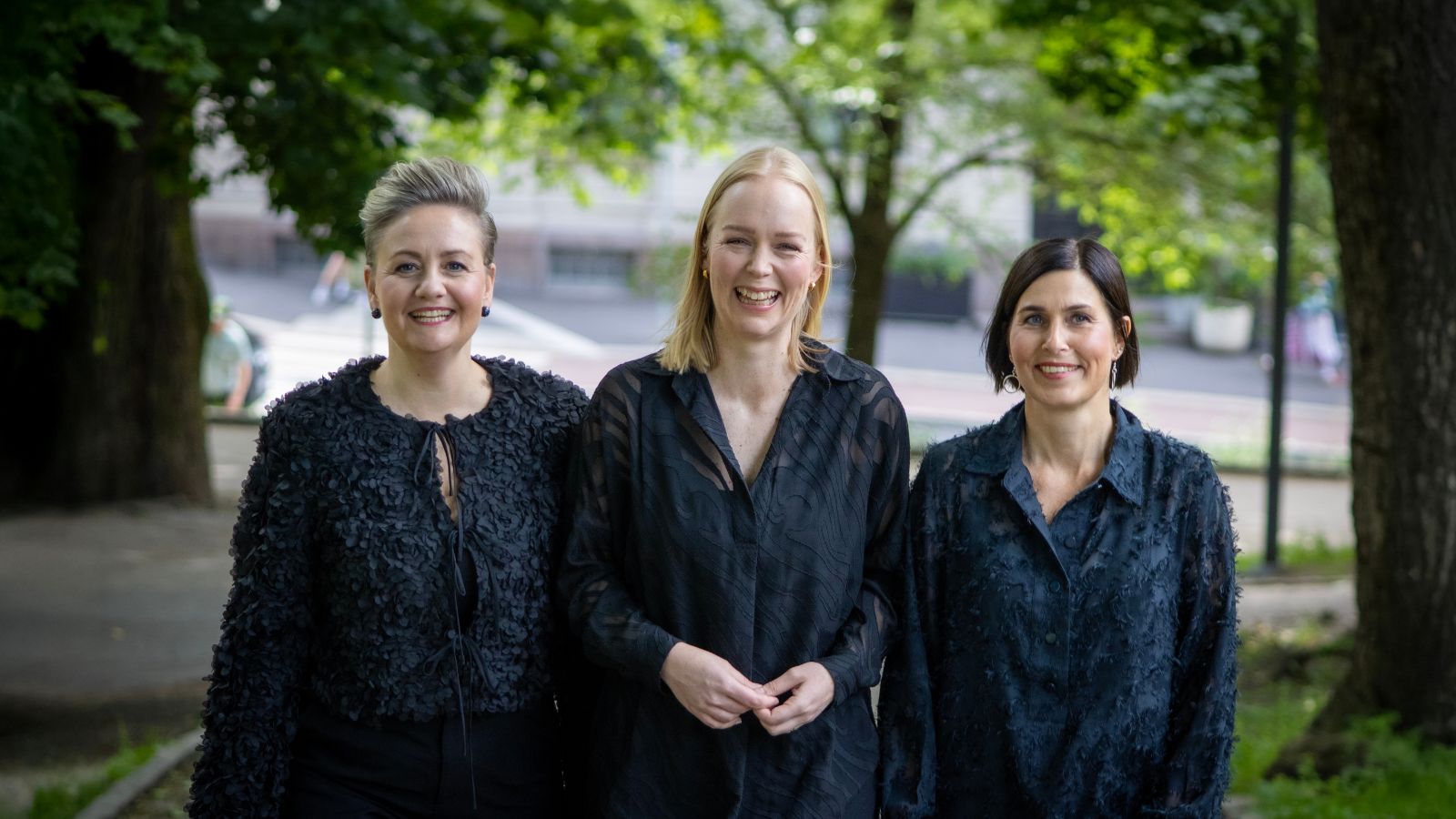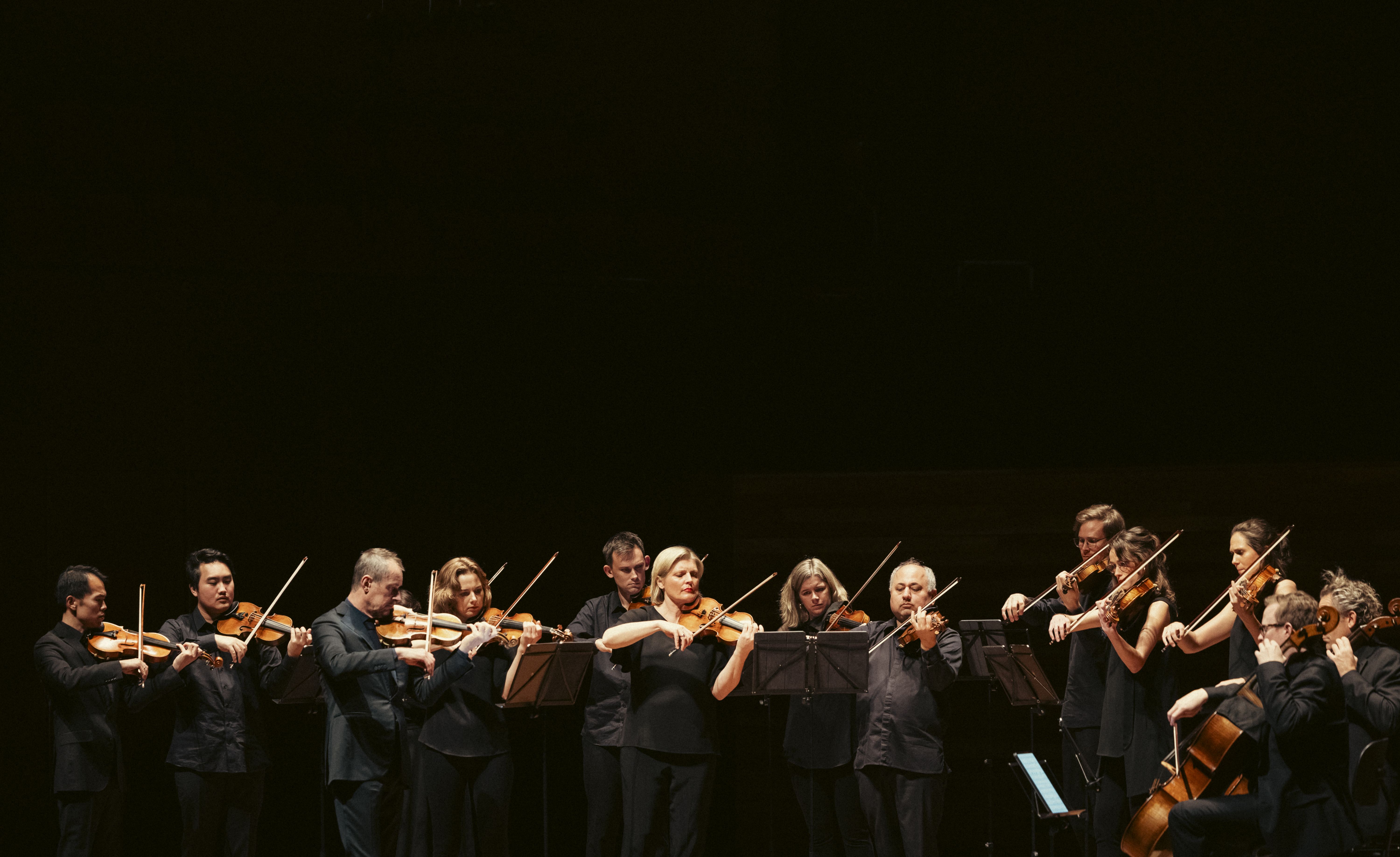
The sound of Trio Mediæval is so beautiful and transcendent, they’re often described as angels. And indeed, they’re often singing ancient sacred music, written for worship. But for the Grammy-nominated trio from Norway, the beauty in their music is how it transcends spirituality. It’s deeply personal, but also universal. “There’s something mysterious about it and something quite meditative”, says Anna Maria Friman, one of the founding members.
The piece became the title of their first album, launched to huge acclaim in 2001. It made Billboard’s Top 10 Bestseller list.
How it all began
Linn Andrea Fuglseth had just completed her music studies and was at home with her first child when she began toying with the idea of an all-female, early music trio. “I was really inspired by renaissance and medieval music at the time,” Fuglseth explains. During a year spent at the Guildhall School of Music, she fell in love with medieval English three-part carols so, upon returning to Norway, asked two fellow singers to join a group with her.
The year was 1997, and the three began practising together three hours at a time, three days a week, and decided to invest in a summer school run by the Hilliard ensemble in Cambridge. It was there they began to sing contemporary music and attracted the notice of contemporary composers. After hearing them sing at the summer school, Ivan Moody wrote Words of the Angel especially for them. The piece became the title of their first album, launched to huge acclaim in 2001. It made Billboard’s Top 10 Bestseller list.
Since then, the Trio has become famous for their performances of medieval music and spine-tingling performances of contemporary works, inspired by medieval music. Fuglseth began arranging Norwegian folk music and medieval ballads, anxious to see if anyone would like them – and they did. Their 2009 album Folk Songs was nominated for a Grammy. A long list of collaborations with inventive musicians and orchestras expanded their repertoire further. Fuglseth describes their taste as melodic and minimalist, but isn’t interested in pursuing authenticity over invention.
Performing for nearly thirty years and producing ten albums hasn’t stopped the group pursuing other creative projects and recordings, but the lineup of the band has changed slightly over the years. Trio Mediæval today consists of founder members Linn Andrea Fuglseth and Anna Maria Friman, and Jorunn Lovise Husan who joined the group in 2018. From the Autumn of 2025 Ditte Marie Bræin (who will be with the group in Australia) is alternating with Fuglseth.
There’s a remarkable symmetry between contemporary music and medieval sacred polyphony and chant.
Symmetry between medieval and modern
There’s a remarkable symmetry between contemporary music and medieval sacred polyphony and chant. Modern composers often break the rules of harmonics set in the Romantic and Classical periods, and play with dissonance and harmony in a way that reflects the pre-Classical era. Friman explains a lot of their contemporary pieces were inspired by medieval music, and a large number of the traditional folk songs and hymns they perform have roots in the Middle Ages.
Friman is a scholar of modern performance of medieval music, with a PHD from York University and explains that what they are doing on stage is “an act of simultaneous preservation and re-creation. Making music from around 1000 years ago come alive in the present is remarkable”.
“None of it was originally written to be a part of a concert program,” she says – “nor was it intended to be performed to an audience as we understand it. By working closely with musicologists and other performers in the field, we always try to have editions that are as close as possible to the original medieval manuscripts. But we also feel that we can be very free and creative both in the way we interpret the music and use our voices”.
A heart for performance
The Trio maintains a busy concert schedule performing with some of the world’s best orchestras and chamber groups in prestigious venues including Wigmore Hall, Carnegie Hall, the Kennedy Centre, Elbphilharmonie in Hamburg and the Concertgebouw in Amsterdam. So, with its fondness for collaboration, arrangements, improvisation and invention, the ACO is a natural fit. As part of the ACO’s 2026 Season, Richard Tognetti will direct a soul-stirring collaboration between the ACO, Trio Mediæval and extraordinary trumpeter Arve Henriksen. The ensemble will perform an evocative program of music featuring ancient hymns from the frozen North, music by Sigur Rós and Grammy Award winning composer Hildur Guðnadóttir.
There’s always something new to discover, even singing the most ancient songs. And whether they’re arranging fragments of an ancient mass, reimagining Nordic folk songs or revolutionising the concept of a Christmas album, as with 2024’s release of Yule, Trio Mediæval sing everything with their whole heart. It’s impossible to remain unmoved.
Click here to discover and book From Winter's Stillness, touring to Canberra, Melbourne, Adelaide, Perth, Sydney, and Brisbane from 25 July - 9August.
Written by Jennifer Williams
